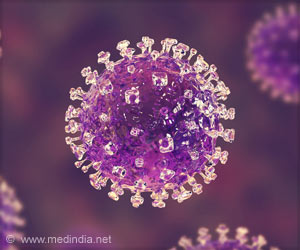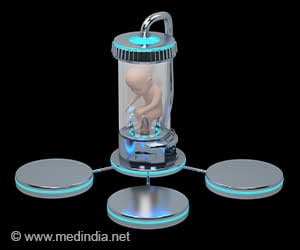
"It's a major issue when adverse events aren't being counted in clinical trials, and this has led to a profound underappreciation of the risk for heart failure and other adverse cardiac events," said Ronald Witteles, MD, assistant professor of cardiovascular medicine and the first author of the commentary.
The two researchers — Witteles, a cardiologist at Stanford Hospital & Clinics, and co-author Melinda Telli, MD, assistant professor of oncology and a member of the Stanford Cancer Institute — became concerned when they started seeing a surprising numbers of patients with heart failure who were being treated with the cancer treatment sunitinib.
"That's what first raised our eyebrows," Witteles said.
The U.S. Food & Drug Administration approved sunitinib, which is marketed by Pfizer Inc. under the trade name Sutent, for the treatment of kidney cancer and certain types of pancreatic and gastrointestinal cancers over the past five years.
What the two authors found was a complete disconnect between reported incidences of cardiac toxicities in journal articles on the one hand, and the FDA's drug labeling on the other. The labeling raised red flags, indicating that clinicians should be aware of the possible side effects of cardiac damage in patients using the drug — a very different picture than what had been presented in the journal articles.
Advertisement
The authors said sunitinib is a good example of how the current method of measuring cardiac side effects during cancer drug trials is inadequate. While the commentary focuses solely on sunitinib, the authors believe that studies of other cancer drugs have similar methodological problems and are prone to the same under-reporting of side effects as sunitinib.
Advertisement
"We're using this as a case example because it is such a good one," he added.
The commentary quotes from papers published in both the Lancet and the New England Journal of Medicine that Witteles and Telli believe under-reported cardiac toxicity results from clinical trials of sunitinib.
For example, in October 2006, the results of the first phase-3 study of sunitinib published in the Lancet stated that there was no evidence of a decrease in left ventricular ejection fraction measurements, which indicate how well the heart pumps and is a common test for heart health.
And yet, the FDA's 2007 labeling of sunitinib for use in kidney cancer treatment — which was based on the same data set from the same trial — stated that 11 percent of trial subjects on sunitinib and 3 percent on placebo developed ejection fraction measurements below the lower limit of normal.
Most worrisome about this disconnect is that many clinicians read journal articles on new drugs, but few read labeling, Witteles said.
"I would emphasize here that this under-reporting in journal articles has very real consequences," Witteles said. "Many patients had major morbidity or mortality as a consequence of cardiac toxicity on this drug. These are exceptionally useful drugs, but clinicians need to know the full array of possible cardiac side effects so that they can monitor cardiac function appropriately and consider starting cardiac medications or holding the anti-cancer therapy altogether when necessary."
The three sunitinib studies referred to in the article — two in the New England Journal of Medicine and one in the Lancet — were all funded by Pfizer, which raises the potential of conflicts of interest, Witteles said.
"It's hard to know if conflicts of interests played a role in these inconsistencies," Witteles said.
It is clear that these inconsistencies in reporting are at least in part due, the authors note, to an inadequate method of measuring adverse events in clinical trials that allows for too much variability in how individual investigators at different sites can grade possible adverse events.
For instance, there are inconsistencies in defining what an adverse event is, and whether an adverse event may be ignored if there are questions as to whether the event was caused by the drug treatment, the commentary states.
In addition, currently there is no requirement that the results from primary data sets — such as an imaging finding or a laboratory test — be reported at all, which places more reliance on the judgments made by the individual site investigator.
"Once the data has been validated, it's better to rely on primary data than on the idiosyncrasies of the site investigator," Witteles said. "Often events just get missed. ... It's easy for a journal publishing a report on a new cancer agent not to pick up on these inconsistencies, particularly if they don't have access to the data."
The FDA, on the other hand, reported figures on the drug label based on the real decreases in cardiac function as reflected by the primary data, which enabled the agency to come closer to determining the actual number of adverse cardiac events, the authors said.
Among their list of recommended reforms, Witteles and Telli suggest that whenever there has been a signal of heart toxicity in a drug trial, routine cardiac monitoring be built into the trial. This is one of several recommendations they make to assure reliable, accurate and consistent reporting of cardiac safety in cancer trials.
Source-Eurekalert














